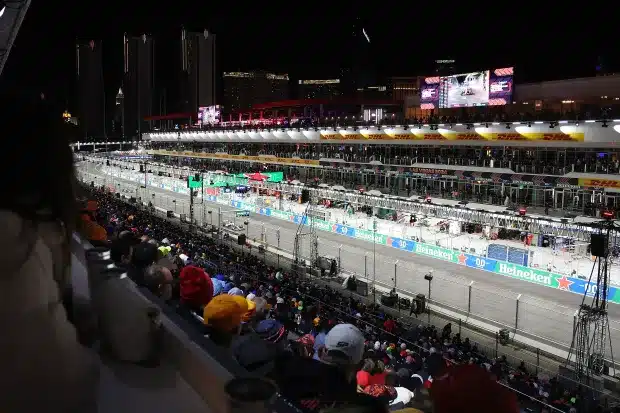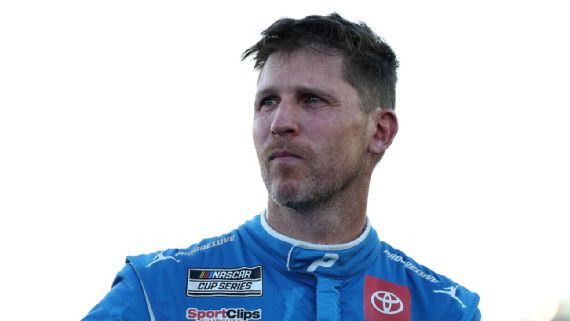CHARLOTTE, N.C. — A federal courtroom became the latest battleground in a deepening standoff between NASCAR and two of its Cup Series teams—Michael Jordan’s 23XI Racing and Front Row Motorsports—as tensions erupted in a nearly two-hour hearing on Tuesday that laid bare the stakes of an escalating antitrust legal fight.
U.S. District Judge Kenneth Bell, presiding over the Western District of North Carolina, pressed all parties to consider the broader impact of their bitter dispute over NASCAR’s charter system, urging both sides to seek a settlement rather than prolong an expensive and uncertain courtroom battle.
“It’s hard to picture a winner if this goes to the mat—or to the flag—in this case,” Bell said. “It scares me to death to think about what all this is costing.”
At the heart of the dispute is NASCAR’s charter agreement, the sport’s version of a franchise model that guarantees race entries and revenue for chartered teams. Thirteen teams agreed to a new deal in September 2024. However, 23XI Racing, co-owned by NBA legend Jordan and veteran driver Denny Hamlin, and Front Row Motorsports, led by businessman Bob Jenkins, refused to sign—setting off a legal war that’s now threatening to reshape the business structure of stock car racing.
Allegations of Collusion
The hearing focused largely on the teams’ request to dismiss NASCAR’s countersuit, which accuses 23XI and Front Row—specifically Jordan’s longtime business manager Curtis Polk—of attempting to create an anti-competitive “cartel” during charter negotiations. NASCAR claims Polk coordinated messages among all 15 Race Team Alliance (RTA) teams to collectively boycott individual negotiations and potentially even Cup Series races.
One of NASCAR’s attorneys cited a message Polk allegedly shared with the group, quoting Benjamin Franklin:
“We must all hang together, or most assuredly we shall all hang separately.”
That revelation enraged the teams’ legal counsel, Jeffrey Kessler, who called the reference to privileged communications “beneath the dignity” of NASCAR’s legal team and rejected the idea that joint negotiation efforts were unlawful.
“NASCAR knows it has no defense to the monopolization case,” Kessler said outside the courthouse. “This is about deflecting attention from their dominance of this market. What Polk and the RTA did wasn’t illegal—it was necessary.”
NASCAR, however, said the threat of coordinated boycott was credible—especially after teams previously skipped a scheduled meeting with league officials. That, they argued, proved the seriousness of Polk’s efforts to pressure all 15 teams to resist NASCAR’s terms.
“The next logical step was a race boycott,” said NASCAR attorney Lawrence Buterman.
Legal Uncertainty Looms
Judge Bell didn’t set a specific timeline for ruling on the motion to dismiss NASCAR’s countersuit but promised to act swiftly. Still, the broader case is far from over, with a trial date set for December.
The tension is compounded by the recent decision from a three-judge federal appellate panel to dismiss a preliminary injunction that had temporarily forced NASCAR to recognize 23XI and Front Row as chartered teams. Kessler said he plans to appeal that ruling to the full appellate court by the end of the week.
If the appeal fails, both 23XI and Front Row could lose their charter status as soon as early July. That would reclassify their six combined cars as “open” entries, requiring them to qualify on speed each week—risking both race participation and substantial revenue.
Discovery Disputes Ahead
Another flashpoint emerged over discovery, particularly the communications of Jonathan Marshall, executive director of the RTA. NASCAR has requested a sweeping trove of documents and messages—more than 3,000 texts and over 55,000 pages of emails—from 2020 through 2024.
Attorneys for the teams argue that some data is privileged, while others were deleted “to save storage or [because] he didn’t need them anymore.” That issue will be revisited in a follow-up hearing next Tuesday.
The Road Ahead
With NASCAR and two of its most visible teams locked in a potentially precedent-setting legal dispute, the outcome could ripple across the motorsports landscape. If the court ultimately sides with the teams, it could dramatically weaken NASCAR’s control over the charter model—and embolden more collective action from the Race Team Alliance.
For now, Judge Bell’s courtroom remains a pressure cooker, and the series’ power structure hangs in the balance.
“No one wins if this drags on,” Bell warned. “Let’s find a way to resolve this—before the damage becomes permanent.”




